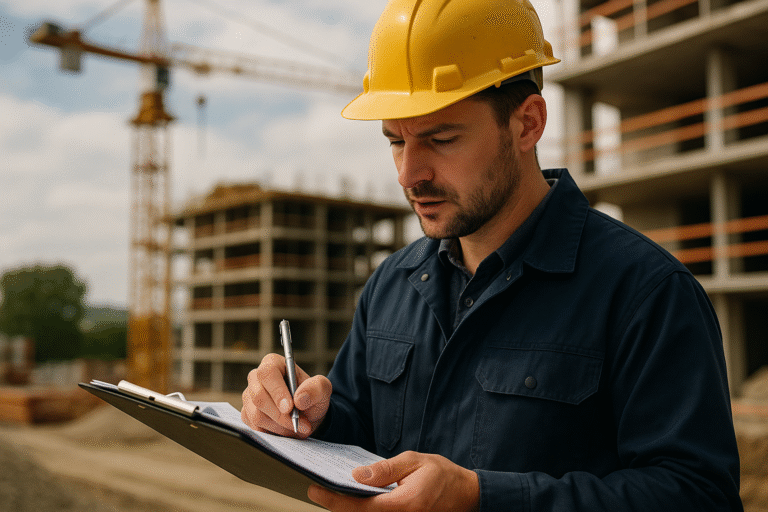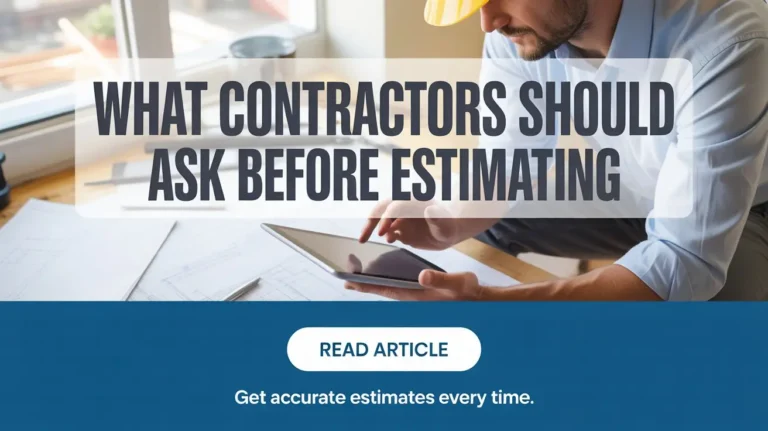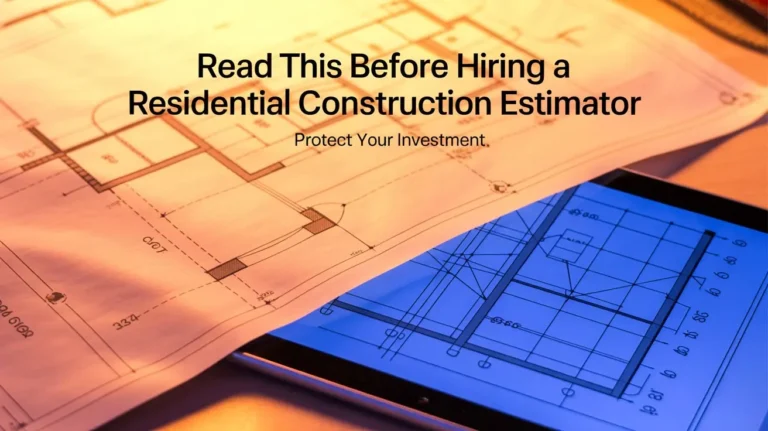Bid Preparation Tips: What Contractors Should Ask Before Estimating
Winning bids starts with precision, and that begins long before you crunch numbers. In the competitive construction landscape, taking a rushed or fragmented approach to construction estimates can cost you more than just tens of dollars, it can cost you the contract. Imagine overlooking a critical site condition or missing a specification update because you skipped the pre‑bid conversation: suddenly, your carefully calculated quote becomes a risk-laden liability.
That’s why top-performing contractors treat bid preparation as a strategic advantage, not just an administrative task. Before running takeoffs, these professionals ask smart, targeted questions that clarify budget expectations, expose hidden site challenges, define scope boundaries, and align on process details. When you lead with that level of preparation, two things happen: your estimates become more accurate, and your clients start to see you as a trusted partner who truly understands their needs.
In this article, you’ll discover the 10 essential questions every contractor should ask before estimating—so you can sharpen your approach, avoid costly pitfalls, and submit bids that win. Let’s dig in.
1. What’s Your Budget Range?
Before diving into numbers, clarify the project’s budget scope. Whether a renovation or a full build, knowing if the client is targeting $30K or $300K shapes material quality, labor allocation, and project scale. It saves everyone time and ensures alignment from the start.
2. Are Plans, Specs & Addenda Finalized?
Request the most current, stamped plan set and any addenda or revisions. If documents are incomplete or pending updates, your estimate must reflect those uncertainties. A version-controlled document trail helps avoid mismatches between scope and pricing later.
3. Are Allowances & Contingencies Included?
Ask whether certain items—finishes, fixtures, site work—are placeholders. Clarify who will adjust allowances if selections change, and agree on a standard contingency buffer (5–15%) for unknowns. It ensures your takeoff is transparent and flexible.
4. Are Site Conditions and Unknowns Fully Understood?
Always question if site-specific factors have been accounted for—soil type, demolition, access, utilities. A thorough site visit or detailed Q&A prevents surprises like unsuitable soils or hidden infrastructure that can derail budgets and timelines.
5. Who Handles RFIs, Clarifications & Addenda?
Clarify how missing info or unanticipated conflicts are addressed: who initiates Requests for Information, who tracks responses, and how late changes are processed. A centralized RFI log means fewer assumptions and smoother coordination.
6. What Bid Format & Level of Detail Do You Prefer?
Does your client want a high-level lump sum, CSI-coded line items, or unit-based pricing? Confirm the bid structure, level of breakdown, and any mandatory templates—especially for public sector or hard-bid projects.
7. What Are the Key Project Milestones?
Ask for desired start dates, completion deadlines, and interim milestones. Aligning your estimate with the schedule ensures labor costs, seasonal pricing, and cash flow assumptions are accurate and feasible.
8. What Contract Terms, Insurance, and Risk Allocation Apply?
Clarify contract type (e.g. lump sum, design-bid-build, GMP), bonding, insurance levels, warranty obligations, and change order processes. Early visibility into contractual risk ensures your overhead, markup, and buffers are correctly applied.
9. Which Qualifications & Past Work Should Be Emphasized?
Even in price-driven bids, credentials matter. Ask which certifications, specialized experience, or past projects should be highlighted. Tailored references and case studies help differentiate beyond cost alone.
10. How Do You Prefer Communication & Feedback?
Agree on your follow-up process: Do you receive feedback on non-awarded bids? What’s the turnaround on client questions? Who’s your point of contact? Establishing a consistent communication rhythm builds professionalism and future opportunity.
Contractor’s Pre-Bid Question Checklist
| Question | Why It Matters |
| What’s the project’s budget? | Sets scope and quality expectations early |
| Are the plans/specs final? | Avoids estimating outdated information |
| Are allowances identified? | Helps manage unknowns and selection changes |
| Any site conditions to note? | Prevents undisclosed surprises |
| Who handles RFIs/addenda? | Clarifies process during bid prep |
| What format should the bid take? | Ensures submission aligns with expectations |
| Any critical milestones? | Aligns costs to schedule |
| What contract terms apply? | Pricing adjusts to risk/obligation levels |
| What credentials should be highlighted? | Builds credibility aside from cost |
| How will follow-up work? | Professional closure and future relationship |
Why These Questions Make You Stand Out
- Guard Against Scope Creep: Insight into specs and allowances prevents missed items or cost overruns.
- Position as a Trusted Advisor: Asking smart questions builds trust and shows you know what details matter.
- Streamline Estimating Accuracy: Clarity on plans and site conditions keeps your takeoffs sharp.
- Boost Conversion Chance: When clients see your understanding and organization, you’re more likely to earn the job.
No More Delayed Estimates
EstimateLift delivers the fastest, most reliable estimates—in just 12–24 hours.
Never miss out on a project because of late bid reports again!
Upload your plan, and receive a comprehensive estimate within a day.
Prefer personalized support?
Book a Free Discovery Call with our estimating specialists to streamline your process and boost your bid success.



